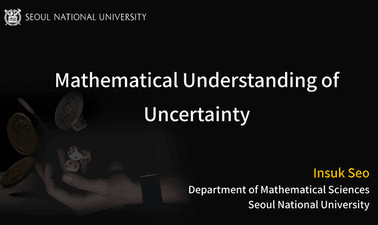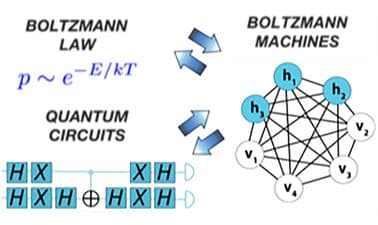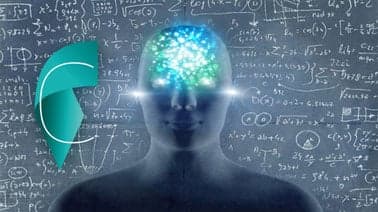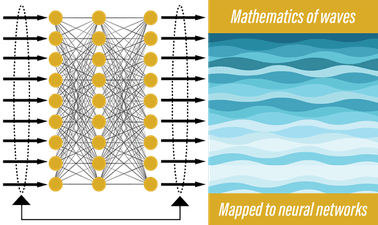Course Description
This advanced-level course is a unique and innovative exploration that bridges three distinct fields: statistical mechanics, machine learning, and quantum computing. At its core, the course revolves around the unifying concept of a state-space with 2^N dimensions defined by N binary bits. This interdisciplinary approach provides students with a comprehensive understanding of how fundamental principles in physics can be applied to cutting-edge technologies and computational methods.
What Students Will Learn
- Boltzmann Law and its applications in statistical mechanics
- Principles and implementation of Boltzmann Machines in machine learning
- Transition Matrix theory and its relevance to computational methods
- Quantum Boltzmann Law and its implications for quantum systems
- Quantum Gates and their role in quantum computing algorithms
Prerequisites
This course is designed for students with a strong background in engineering or physical sciences. Participants should have a solid foundation in:
- Differential equations
- Linear algebra
- Basic concepts in physics and mechanics
Course Coverage
- Fundamentals of statistical mechanics, including entropy and free energy
- Boltzmann Machines and their applications in machine learning
- Markov Chain Monte Carlo methods and Gibbs Sampling
- Quantum spin systems and quantum annealing
- Quantum computing concepts, including Grover's search algorithm and Shor's algorithm
- The transition from classical to quantum computational models
Target Audience
- Advanced undergraduate or graduate students in engineering, physics, or computer science
- Professionals working in fields related to machine learning or quantum computing
- Researchers interested in interdisciplinary applications of statistical mechanics
- Anyone with a strong mathematical background looking to expand their knowledge in cutting-edge computational methods
Real-World Applications
- Developing more efficient machine learning algorithms for complex problem-solving
- Designing and optimizing quantum computing systems
- Advancing research in fields such as materials science, cryptography, and drug discovery
- Improving optimization techniques for large-scale industrial processes
- Enhancing data analysis methods in fields like finance, healthcare, and climate science
Syllabus
Week 1: Boltzmann Law
- State Space
- Boltzmann Law
- Shannon Entropy
- Free Energy
- Self-consistent Field
- Summary for Exam 1
Week 2: Boltzmann Machines
- Sampling
- Orchestrating Interactions
- Optimization
- Inference
- Learning
Week 3: Transition Matrix
- Markov Chain Monte Carlo
- Gibbs Sampling
- Sequential versus Simultaneous
- Bayesian Networks
- Feynman Paths
- Summary for Exam 2
Week 4: Quantum Boltzmann Law
- Quantum Spins
- One q-bit Systems
- Spin-spin Interactions
- Two q-bit Systems
- Quantum Annealing
Week 5: Quantum Transition Matrix
- Adiabatic to Gated Computing
- Hadamard Gates
- Grover Search
- Shor's Algorithm
- Feynman Paths
- Summary for Exam 3
Epilogue
This course offers a unique opportunity to delve into the fascinating intersections of statistical mechanics, machine learning, and quantum computing. By mastering these concepts, students will be well-equipped to tackle some of the most challenging problems in modern science and technology, positioning themselves at the forefront of innovation in their respective fields.










